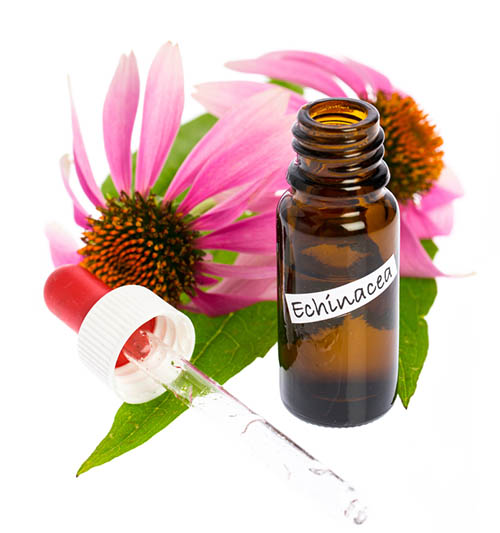Echinacea. One of the best known and most used natural remedies to strengthen the immune system and fight seasonal influences. A plant that we should always have at home as it is rich in properties and benefits even if not free from contraindications.
Don't store avocado like this: it's dangerous ECHINACEA - One of the best known and most used natural remedies to strengthen the immune system and fight seasonal influences. A real natural antibiotic, a plant that we should always have at home as it is rich in properties and benefits even if not free from contraindications.Echinacea is a perennial herbaceous plant of the Asteraceae family that acts very well against immune system thus helping our body to defend itself from pathogenic microorganisms both in the prevention phase and once illnesses have arisen, in particular those caused by colds such as the flu.
The therapeutic use of this plant is ancient and dates back to the Indians of North America who used it mainly for external use for the treatment of burns and wounds of various kinds.
Currently it is one of the most used and appreciated natural remedies (even for children) in the autumn and winter months, a plant that should never be missing in our natural "first aid" kit.
But now let's discover all the benefits of this plant ...
Index
Properties of Echinacea
Science has also confirmed the efficacy of echinacea against influenza. Recent clinical research has revealed that a herbal product containing a special echinacea root extract was as effective as the conventional drug Oseltamivir (Tamiflu) for the early treatment of influenza.
In particular, this plant is able to:
- stimulate the macrophage immune system and it can also be useful against colds in the preventive phase. In this case, a treatment based on this plant must be done for at least 3 months before the winter period when it is easier to get sick.
- antibacterial and antiviral: not only stimulates the natural defenses of our organism, this plant is also active against bacteria and viruses.
- inflammatory: echinacea also acts positively against the mucous membranes which helps to relieve inflammation, it can be used successfully both in case of cough, bronchitis and in all problems affecting the respiratory tract but also for urinary inflammation (such as cystitis). In fact, the anti-inflammatory properties of echinacea have been demonstrated.
- healing: the active ingredients present in this plant give it the ability to regenerate tissues and this makes echinacea a useful plant for healing wounds more quickly.
How to use Echinacea
Like most natural remedies, this plant also proves to be particularly effective especially if used when the first symptoms of cold or flu appear, thus acting promptly in treating viruses before they can replicate numerous. For this purpose it can be used both in the form of drops and in herbal tea (see below).
Given its antibacterial and anti-inflammatory potential, echinacea is also used in the treatment of urinary tract infections such as cystitis, although for this purpose there are probably more effective and faster remedies. Furthermore, this plant is also recommended for external use in the form of creams or ointments that can help counteract skin problems such as dermatitis and burns but also canker sores.
Applied locally it can also be very useful in making a small wound heal faster. In this case you can use the infusion as a pack or preparations ready in herbal medicine or pharmacy.

In summary, this plant can be useful for:
- stimulate the immune system
- influence
- cough
- sore throat
- cold
- cystitis
- dermatitis (external use)
- afte (external use)
- wounds (external use)
Echinacea, glycerine macerate and herbal tea
Very useful the glycerine macerate of echinacea diluted with water to rinse in case of sore throat. Just dissolve 10 drops in a glass of water or use an infusion based on echinacea and other herbs such as erysme and sage. The preparation is very simple: pour a teaspoon of herbs in cold water and bring to a boil then let it cool, filter and use to gargle 2 or 3 times a day.

It is also okay to use only the echinacea herbal tea to drink once or twice a day to better prepare for winter. For each cup of boiling water pour 1 teaspoon of dried echinacea and let the herbal tea rest for 5-10 minutes before drinking it.

Echinacea, contraindications
Echinacea is a plant with few contraindications but to be seriously considered. First of all, those who are allergic to plants of the Asteraceae family cannot take this plant for any reason. It is also absolutely not recommended for those who:
- suffer from autoimmune diseases
- you are taking immunosuppressive drugs
- pregnancy
- nursing
- children under the age of 3 (and only under the advice of their pediatrician)
You may also be interested:
- Echinacea: more effective than drugs to beat the flu
- Natural Antibiotics: 10 Foods and Herbs Real Medicines
- Cold and flu? The natural answer is in echinacea
- Natural remedies for colds: medicinal plants and essential oils
- 10 Foods and tips to strengthen the immune system
- The 12 best herbal teas for colds and flu

























